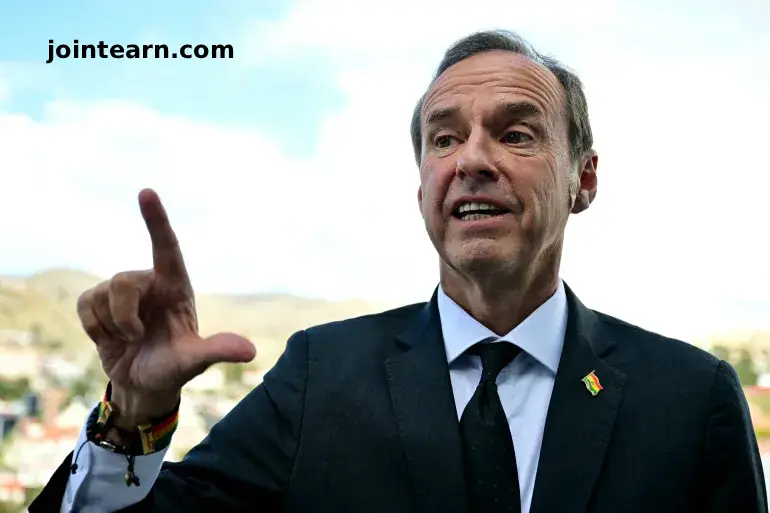
La Paz, October 19, 2025 — Bolivians headed to the polls on Sunday in a decisive run-off presidential election that signals the end of nearly twenty years of socialist rule and the potential start of a dramatic foreign policy shift toward the United States.
Voting began at 8 a.m. local time (12:00 GMT) and will close at 4 p.m., with preliminary results expected later in the evening. The contest pits two pro-market figures — Jorge “Tuto” Quiroga, a conservative former interim president, and Rodrigo Paz, a centrist economist and senator — against one another in a vote widely viewed as a referendum on the Movement Towards Socialism (MAS) party’s long dominance.
The End of an Era for Bolivia’s Socialists
After nearly two decades under Evo Morales and his successor Luis Arce, Bolivia’s once-powerful socialist movement is facing political collapse. The MAS party, crippled by internal divisions and economic mismanagement, failed to qualify for the run-off after its support plummeted in August’s first-round vote.
This marks a watershed moment in Bolivia’s political history — a decisive rejection of socialist governance that once made the country a model of leftist populism in Latin America. Analysts say the outcome could realign Bolivia with Washington after years of frosty relations under Morales’s anti-U.S. rhetoric.
“This election represents a political turning point,” said Glaeldys González Calanche, an analyst at the International Crisis Group. “Regardless of who wins, Bolivia is moving toward a new political and economic direction.”
Economic Crisis Dominates the Agenda
The election comes amid the country’s worst economic crisis in decades. Inflation has soared past 20 percent, fuel shortages have crippled transportation, and the country’s once-robust gas industry is faltering after years of neglect and subsidies.
Long queues at petrol stations have become a daily reality in La Paz and Santa Cruz, while Bolivia’s foreign currency reserves have nearly dried up. Citizens, weary of economic turmoil, are demanding immediate relief.
“Everything is too expensive. We don’t know how much worse it will get,” said Felicidad Flores, a 67-year-old street vendor in La Paz.
Truck driver Javier Quispe, waiting in a kilometer-long fuel queue, added: “There isn’t much hope. We’re worse off than before.”
Economists agree that whoever wins will face enormous pressure to stabilize public finances, end fuel subsidies, and attract foreign investment — while also avoiding a social explosion from austerity measures.
Competing Visions for Bolivia’s Future
While both candidates advocate market-oriented reforms, their approaches diverge sharply.
Jorge “Tuto” Quiroga, who briefly served as president between 2001 and 2002, is campaigning on “radical economic change.” He vows to reopen Bolivia to foreign investment, slash government spending, privatize unprofitable state companies, and phase out most fuel subsidies.
His rival, Rodrigo Paz, the son of former president Jaime Zamora, proposes a moderate model of “capitalism for all.” He promises fiscal responsibility coupled with decentralized governance and continued funding for essential social programs.
Paz’s campaign slogan — “Growth with dignity for every Bolivian” — has resonated with middle-class voters anxious about inequality and inflation. Still, polls show a narrow lead for Quiroga, reflecting voter fatigue with socialism and a desire for a clean economic break.
Morales’s Shadow and U.S. Relations
Even out of power, Evo Morales remains a looming figure. Barred constitutionally from running again and facing a warrant for alleged human trafficking — charges he denies — Morales has called for a boycott of the run-off, urging loyalists to reject both candidates.
Despite his diminished influence, observers warn Morales could still mobilize street protests if the new government moves too quickly to dismantle his policies.
“Even weakened, Morales remains a potential destabilizing force,” said Daniela Osorio of the German Institute for Global and Area Studies. “If the next president doesn’t address social inequality, Bolivia could face unrest.”
Both Quiroga and Paz have promised to rebuild ties with Washington, ending years of hostility that saw U.S. diplomats expelled and anti-narcotics cooperation suspended. U.S. Secretary of State Marco Rubio called the election a “transformative opportunity” for a fresh start in bilateral relations.
A Tense and Historic Vote
Nearly eight million Bolivians are eligible to vote, and participation is mandatory. Security forces have been deployed nationwide amid fears of potential demonstrations.
The winner — to be inaugurated on November 8, 2025 — will inherit a divided nation, a broken economy, and a restless electorate.
Whether Bolivia embraces deep neoliberal reforms under Quiroga or a centrist recovery under Paz, the post-socialist era has begun.


Leave a Reply